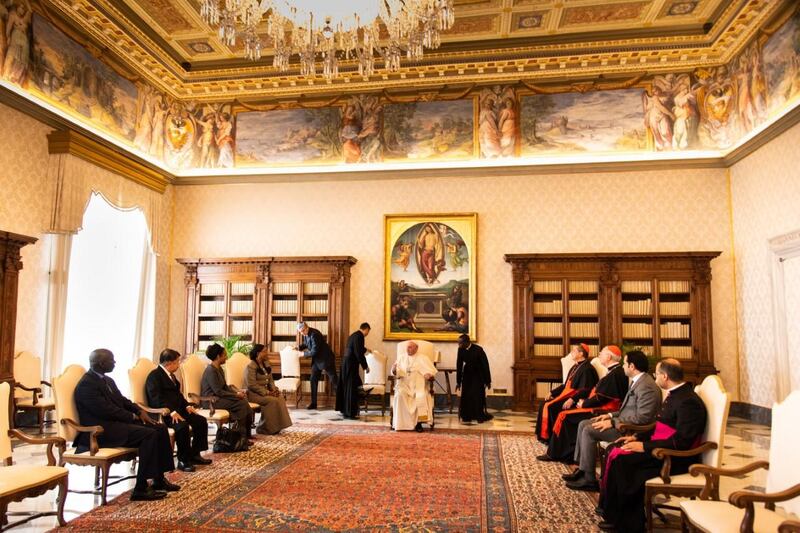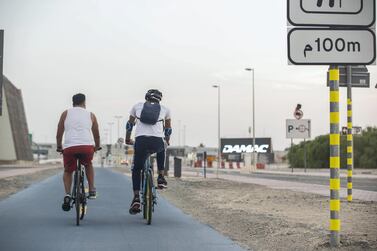Almost two years after Pope Francis’s visit to Abu Dhabi, the first by a Catholic pontiff to the Gulf, considerable efforts have been made within the Emirates to build upon that historic occasion.
On Friday, Pope Francis met in Rome with the panel of international judges for the Zayed Award for Human Fraternity, a prize that celebrates people and organisations striving for human progress. The $1 million prize was established last year. Pope Francis was the first recipient, sharing the award with Dr Ahmed Al Tayeb, Grand Imam of Al Azhar. The two religious leaders signed the Document on Human Fraternity, aimed at advancing dialogue between different religions, in Abu Dhabi in February of last year.
This year, the Zayed Award is open to nominations and future recipients may hail from anywhere in the world. Pope Francis shared powerful words of advice during the meeting. He told the judges: "I have shared bread with my brother, the Grand Imam Al Tayeb, and I want you to help humankind, with the committee, to share bread."
The award's judging panel is made up of professionals who have contributed to peace and progress in their own ways. It comprises a diverse set of people, including Catherine Samba-Panza, former president of the Central African Republic, Muhammad Jusuf Kalla, former vice-president of Indonesia and chairman of the Indonesian Red Cross, and Adama Dieng, a former UN special adviser on the prevention of genocide.
This roster embodies the very goal of the Zayed Award: to promote peaceful coexistence and understanding between different cultures and religions, and to celebrate the work of people from around the world who are dedicated to this cause.
In the UAE, the year 2019 was officially proclaimed the Year of Tolerance, as part of a government drive to promote coexistence and pluralism. A series of initiatives and campaigns was launched as part of that drive, chief among them the Pope's visit. But the UAE's plan to advocate for tolerance extends beyond the year 2019. It is best embodied by long-term projects, including the Abrahamic Family House, a complex that aims to bring together adherents of all three Abrahamic faiths – Islam, Christianity and Judaism – in worship. The project, which is still under construction, will consist of a mosque, a church and a synagogue on the same site.
More than 80 per cent of people living in the UAE are foreign residents, meaning the Gulf nation has firsthand experience of just how pivotal religious tolerance is in fostering a peaceful, open society. Ensuring that people respect one another’s religious beliefs is a core Emirati value.
At a time when some leaders around the world are increasingly using religion to score political gains, even at the cost of social cohesion, it is all the more crucial to defend tolerance. Society must continue its support of initiatives that bring together people of all faiths instead of dividing them.






